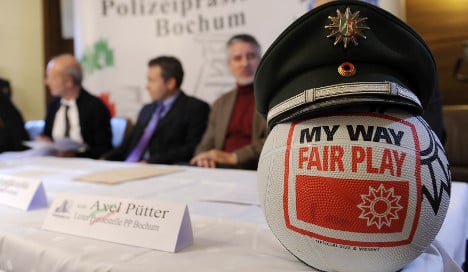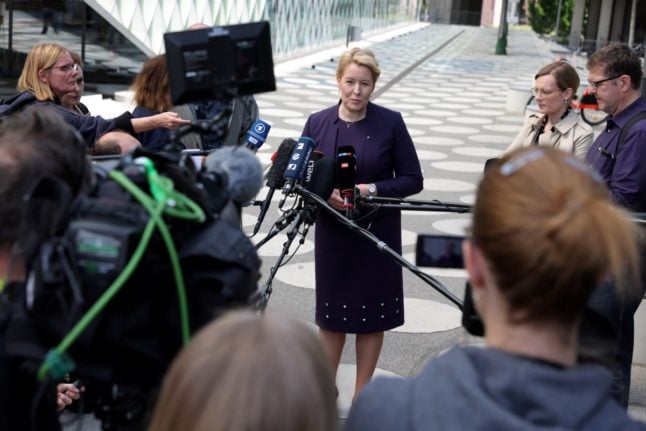A criminal band operating across Europe is suspected of swaying games in Germany, Belgium, Switzerland, Croatia, Slovenia, Turkey, Hungary, Bosnia-Herzegovina and Austria.
“But this is just the tip of the iceberg,” investigating prosecutor Andreas Bachmann said.
They include three Champions League ties, 12 matches in the Europa League, formerly the UEFA Cup, one qualifying game for the under-21 European championship and four from the German second division.
UEFA said it would give details of the matches later, but the 15 at European level involved early qualifying round games, while the rest were under the jurisdictions of national football associations. Most of the matches are believed to have taken place this season.
By bribing players, coaches, referees and officials to influence matches, the criminals are then believed to have earned millions by placing huge bets on the games with bookmakers in Europe and Asia, primarily in China.
“Without doubt this is the biggest scam there has ever been in European football,” UEFA’s match-fixing specialist Peter Limacher said in Bochum, where the police investigation was organised.
“We are deeply shocked by the scale of match-fixing through international gangs. We now have to do everything possible to ensure that referees, players and officials implicated face justice,” Limacher told reporters.
Around 300 police carried out around 50 raids on Thursday in Germany, Britain, Switzerland and Austria, arresting 15 people in Germany and two in Switzerland. More than a €1 million in cash and property were seized.
Two of those arrested in Thursday included two Croatian brothers living in Berlin, Ante and Milan Sapina, who were at the centre of a match-fixing scandal that rocked Germany in 2004, newspapers said.
“UEFA will be demanding the harshest of sanctions before the competent courts for any individuals, clubs or officials who are implicated in this malpractice, be it under state or sports jurisdiction,” UEFA General Secretary Gianni Infantino said in a statement.
Investigators are also looking at 32 matches in Germany, including two in the second division, three in the third, 23 games in regional leagues and two under-19 clashes.
Elsewhere, 29 matches in Turkey from the first division downwards, 14 in Croatia’s first division, 13 in Hungary’s first division, eight in Bosnia-Herzegovina’s top flight and 11 in Austria’s first and second leagues.
In Slovenia, seven games in the first division have raised suspicions, as have 22 league games in the Swiss second division and six friendlies, plus 17 in Belgium’s second division, prosecutors said. They warned that the list could get longer.
The 2004 German scandal saw referee Robert Hoyzer sentenced to two years
and five months behind bars after admitting receiving almost €70,000 ($104,000) and a plasma television from a Croatian mafia ring to throw games.
The matches concerned were mainly in the German second and third division, but a German Cup match between first division SV Hamburg and third division Paderborn and a first division match in Turkey were also affected.




 Please whitelist us to continue reading.
Please whitelist us to continue reading.
Member comments